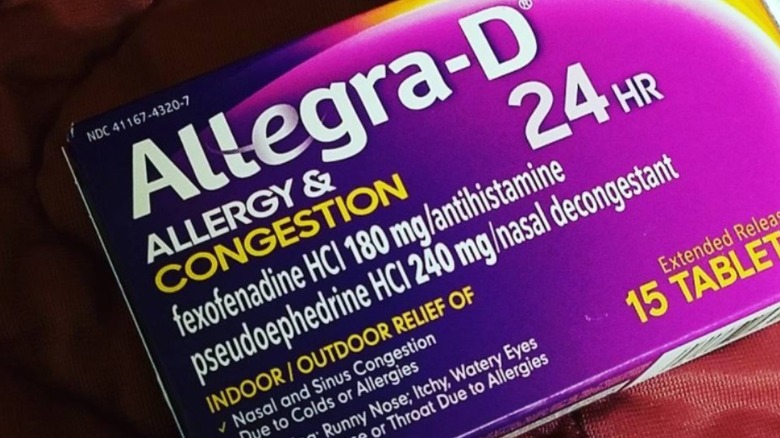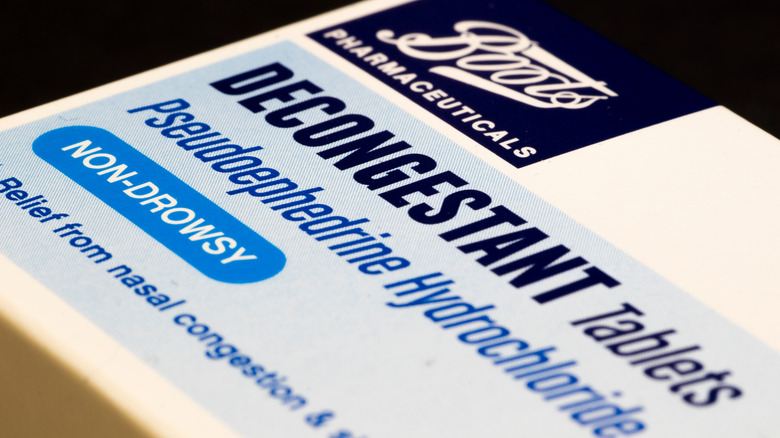What Does The 'D' Stand For In Allergy Medicine?
The American Academy of Allergy, Asthma & Immunology (AAAAI) explains that if you live with outdoor allergies, you probably experience sneezing, sniffling, coughing, and itching during certain times of the year. Environmental factors, like pollen, mold, and even the weather can wreak havoc on those with outdoor allergies, invoking various allergy symptoms. According to the Asthma and Allergy Foundation of America (AAFA), those who have indoor allergies may react similarly to dust, pet dander, and indoor plants.
Allergies, whether seasonal or year-round, can cause a variety of uncomfortable symptoms that may have you running to the pharmacy for some over-the-counter relief. There is a large variety of OTC allergy relief medications, including tablets, nose sprays, and inhalers, and choosing the right one can seem like an overwhelming feat. The pharmacist may suggest an antihistamine, such as Zyrtec and Claritin. They work by blocking histamines, reducing the reaction to the invader, like pollen or dust (via the National Health Service). If you have significant congestion, the pharmacist may point you toward an antihistamine-D.
The "D" is for decongestant
The "D" in your allergy medicine is for decongestant, meaning another ingredient has been added to the antihistamine to help relieve sinus pressure and congestion (via GoodRx). This ingredient, called pseudoephedrine, is the same ingredient you will find in the OTC medication, Sudafed. Your symptoms are an indicator of which OTC medicine to get, and your doctor can help you determine which one will help relieve your allergies.
Verywell Health reports that, although decongestants help mucus drainage and improve breathing, there are some side effects that may be uncomfortable. Some people experience dry mouth, restlessness, nervousness, and headaches when taking decongestants, which can sometimes be more bothersome than the allergy symptoms themselves.
Using an antihistamine with a decongestant may increase blood pressure, as the ingredient works by narrowing the blood vessels. Certain decongestants are not recommended for those who have high blood pressure. If you have hypertension, be sure to check with the pharmacist or doctor before using an allergy medicine (via the Mayo Clinic).


